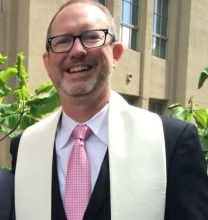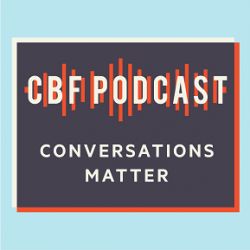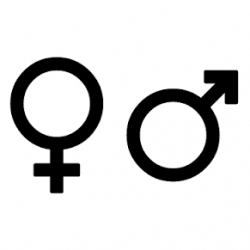By Scott Stearman
Recently I was invited to a presentation of a new musical by a congregant who is a Broadway music director. It was the first public concert version of a brand new artistic endeavor about, strange as it might seem, the building of the famed Brooklyn Bridge.

The music was energetic and new, the story old but relevant. But in spite of the crowd’s enthusiastic response, and the fact that the one-off production was steps from Broadway, it will likely be a while before it lands on Broadway. Musicals are very expensive, not easily produced, and have a long lead-up time before securing a theater on (or even off) that esteemed street.
However I do hope this one sees the light of day because the story ought to be told. It’s one I bet you don’t know. The Brooklyn Bridge, thought of in the 19th century as the eighth wonder of the world, was built by a woman.
A first generation immigrant, engineer Washington Roebling was tasked with building the mammoth structure after the passing of his father. Not long into the construction, Roebling suffered a paralyzing injury as a result of decompression sickness. Roebling was unable to physically supervise the construction. As the chief engineer, Roebling supervised the entire project from his apartment in Brooklyn.
Roebling’s wife, Emily Warren Roebling, provided the essential link between her apartment-bound husband and the engineers on site. But Mrs. Roebling was no passive conduit. She poured her life into the project, navigating both the technical details and the political maze that was 19th century New York City (the bridge was built in the era of the original “Boss Tweed”).
She studied higher mathematics in order to understand things like the calculations of catenary curves. She became acquainted with the details of bridge specifications and the intricacies of cable construction. She spent 11 years supervising the bridge’s construction. It is no exaggeration to say that without her we would not have the masterpiece we have today. The bridge opened in 1883 and at the time it was 50% larger than any suspension bridge in the world.
All through history there have been examples of exceptionally talented and extraordinarily powerful women; women who have conquered, led, engineered, presided, preached, taught, and nurtured. Possibly one of the oldest examples is Deborah the Old Testament judge who was a skillful warrior. And then there are other biblical examples like Esther the queen or Ruth the immigrant. These women transformed their worlds by using the gifts they possessed to extraordinary means in unfavorable circumstances.
Given this history, both biblical and post-biblical, it is amazing that in 2016 we are still living under a global haze of misogyny.
I consider any doctrine, or any conviction, that places women, or their capacities, subordinate to that of men to be an instance of misogyny. Such misogyny (no matter how text-proofed or ecclesiastically robed the “doctrines” are) flies in the face of multiple biblical examples and the sheer common sense of those who are willing to put away their culturally-informed blinders to the power, strength, giftedness, and obvious equality of women.
Such beliefs look past what we know of human biology, i.e., the differences between sexes are less binary than spectral. To put it in colloquial and contemporary terms there are some women who excel at math and some men who love to clean, cook, and stay home with their children.
President Jimmy Carter has provocatively said, “…although economic disparity is a great and growing problem, I have become convinced that the most serious and unaddressed worldwide challenge is the deprivation and abuse of women and girls, largely caused by a false interpretation of carefully selected religious texts …”
President Carter’s statement might strike one as an exaggeration. But he is speaking about 50% of the world’s population. And a cursory glance at the 2016 political campaign in the United States of America – arguably a very open, liberal, and progressive society per women’s rights – proves that President Carter is right and we have a long way to go before seriously addressing this challenge. I considered it a clear (even if at times internalized) expression of misogyny that presidential candidate and now President-Elect Donald Trump could say the things he has said (even laying aside the accusations of abuse) and still be considered by a significant percentage of evangelical believers a “moral leader.”
In my advocacy at the United Nations, I’ve been pleased to encounter very energetic work on gender equality. The Committee for the Status of Women (CSW) has been an active and engaged initiative at the U.N. The various arms of this global body have made major strides in things like female education and fighting horrid practice of female genital mutilation. Last year the General Assembly embraced the new Sustainable Development Goals, with goal number 5 being gender equality.
It was in this context that Wonder Woman made a visit to the United Nations recently.
To be more precise, the character’s contribution to women’s rights was honored recently. For decades and decades this comic book character has been a counter-example to the notion that women are helpless creatures in need of a dominant male to complete them. She has exemplified a strong character of a person bent on justice, caring for the underdog, and not reliant on a male protector. And she has, by all accounts, a worldwide following of girls, although clearly men also need to learn from her.
In the celebration of her global impact, there was of course some consternation about her uniform. She does not wear a pantsuit more appreciated by leading women of our day. There is an argument here, but what must be rejected – outright and voraciously – is the notion that any fashion expression by women should be monitored by men.
However a woman is dressed, no woman is ever “asking for” anything other than to be treated with the respect due to any person who happens to be a human being. The consternation some expressed about Michelle Obama’s sleeveless dresses was often politically (possibly racially) motivated, but its noxious fuel was a misogynistic culture that grants men undue power – even in areas of female fashion.
According to a study released this month, women government leaders around the world routinely experience threats and intimidation. The study of the Inter-Parliamentary Union, an organization of parliamentary bodies worldwide said that, “Sexism, harassment and violence against women parliamentarians are real and widespread.”
The study called out psychological violence as particularly prevalent, concluding, “the phenomenon knows no boundaries and exists to different degrees in every country.”
What a shame that in the 21st century women can’t escape sexism in parliaments or churches.
I’m pleased that the Cooperative Baptist Fellowship has a strong and beautiful 25-year heritage around gender equality. This national body of 1,800 Baptist churches located primarily in the U.S. South rejected the idea that women were doctrinally, ecclesiastically, or genetically subordinate to men.
A growing number of our churches have called women as senior ministers. I serve alongside one of the smartest, loving, and creative pastors I’ve ever met. The fact she is a woman sometimes makes me sad… for I think of all the churches, through all the generations that have missed out because some insecure bearded men in the first century were too insecure to empower women.
We are right to be proud of this progressive correction of a historical injustice – both proud and pleased, as it is absurd to not avail yourself of gifted leadership when it is right in front of you.
Rev. Dr. Scott Stearman serves as pastor of Metro Baptist Church in the Hells Kitchen neighborhood of New York City. He represents CBF and the Baptist World Alliance at the United Nations.
Note: The views expressed here in columns and commentaries are solely those of the authors.
Interested in writing for CBF at Patheos? Submit your column idea to CBF Communications Director Aaron Weaver at [email protected].












